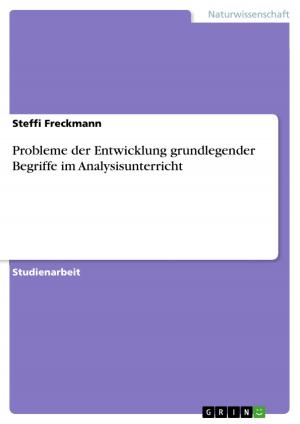Deixis - Communication could never exist without taking deixis into account
Nonfiction, Entertainment, Drama, Anthologies| Author: | Benjamin Türksoy | ISBN: | 9783656142058 |
| Publisher: | GRIN Verlag | Publication: | February 28, 2012 |
| Imprint: | GRIN Verlag | Language: | English |
| Author: | Benjamin Türksoy |
| ISBN: | 9783656142058 |
| Publisher: | GRIN Verlag |
| Publication: | February 28, 2012 |
| Imprint: | GRIN Verlag |
| Language: | English |
Seminar paper from the year 2007 in the subject English Language and Literature Studies - Linguistics, University of Hamburg, language: English, abstract: In language, various ideas can be expressed in alternating ways which, in the end, can all have the same meaning. However, the speaker's choices are influenced and restricted by linguistic factors. The following example of a fictive story shows, how various different words can all have the same meaning 'Yesterday, I went to the park and I saw a boy who killed a pigeon by throwing big chunks of bread at its head. This made me so mad that I had to walk up to the boy and yell at him. Telling him that he shouldn't have done what he did, he told me that he didn't do it intentionally.' In this little story, 'this', 'what he did', and 'it' all refer to the action of the boy killing the duck with a piece of bread. When the speaker of the story chose the pronoun 'it', he must have thought that his audience would easily identify 'it' as the action of killing the duck. Speakers often tend to use pronouns instead of using the antecedent because it simplifies and shortens speech analysis. However, sometimes speech analysis can become very complicated and pronouns confuse the listener, let alone simplify the discourse. For example: (1) 'Peter hit Harry. After this, he didn't like him anymore.' In this case, the listener would have to have contextual information to determine whether Peter did not like Harry anymore or vice versa. Just from reading the sentence, the reader would not know what is really going on. As in this example, or in many other utterances and texts, where chains of pronouns strike the audience, discourse analysis becomes highly complicated.
Seminar paper from the year 2007 in the subject English Language and Literature Studies - Linguistics, University of Hamburg, language: English, abstract: In language, various ideas can be expressed in alternating ways which, in the end, can all have the same meaning. However, the speaker's choices are influenced and restricted by linguistic factors. The following example of a fictive story shows, how various different words can all have the same meaning 'Yesterday, I went to the park and I saw a boy who killed a pigeon by throwing big chunks of bread at its head. This made me so mad that I had to walk up to the boy and yell at him. Telling him that he shouldn't have done what he did, he told me that he didn't do it intentionally.' In this little story, 'this', 'what he did', and 'it' all refer to the action of the boy killing the duck with a piece of bread. When the speaker of the story chose the pronoun 'it', he must have thought that his audience would easily identify 'it' as the action of killing the duck. Speakers often tend to use pronouns instead of using the antecedent because it simplifies and shortens speech analysis. However, sometimes speech analysis can become very complicated and pronouns confuse the listener, let alone simplify the discourse. For example: (1) 'Peter hit Harry. After this, he didn't like him anymore.' In this case, the listener would have to have contextual information to determine whether Peter did not like Harry anymore or vice versa. Just from reading the sentence, the reader would not know what is really going on. As in this example, or in many other utterances and texts, where chains of pronouns strike the audience, discourse analysis becomes highly complicated.















